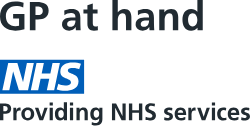
Healthcare has come a long way in a relatively short period of time. People are living longer on average, and as new treatments and drugs are developed, more and more conditions are becoming treatable that would have been unthinkable even a few years ago.
Of course, this is great news, but it does present a number of challenges. Not least the growing demand for healthcare, and the associated increase in cost. For instance, in the UK, healthcare spending accounted for 11.1% of Gross Domestic Product (GDP) in 2024, a figure notably higher than the 9.7% to 10.0% observed between 2009 and 2019, and this is only predicted to rise.
As a result, the traditional model of general practice is evolving. We’re seeing an increasing demand, not just for appointments, but for a more holistic and proactive approach to health. People are living longer, often with multiple chronic conditions, and more and more care is being delivered in the community, reducing the need for people to visit hospitals.
There also are a number of opportunities on the horizon. By harnessing the power of technology, and a renewed focus on prevention rather than treatment, we have the opportunity to improve the health of our nation.
The Power of Technology
We can, of course, already see the transformative potential of technology in day to day general practice. For many routine consultations, a video or phone call can be just as effective, saving patients travel time and reducing pressures on waiting rooms across the nation. Apps to help book appointments, request prescriptions and manage chronic conditions are already helping to support millions of us every day.
But it goes much further. Wearable tech and remote monitoring devices are already empowering patients to take a more active role in managing their own health, transmitting vital signs directly to their care team, allowing for earlier interventions and personalized care plans. For example, continuous glucose monitors for diabetics or smart inhalers for asthmatics can provide invaluable real-time data, enabling their treatment to be adjusted proactively and preventing costly hospital admissions. And that’s before we even think about the potential of artificial intelligence to assist with diagnostics, sifting through vast amounts of data to identify subtle patterns that might escape the human eye.
Prevention is Better Than Cure
The future of healthcare must also be firmly rooted in prevention. We need to shift away from a purely reactive model of treating illness, and towards a proactive one that promotes well-being and prevents disease from taking hold in the first place. This approach not only improves quality of life but also offers significant economic benefits by reducing the long-term costs associated with chronic disease management.
This means a focus on health education, targeted screening programmes, and robust public health initiatives addressing issues like obesity, smoking, and sedentary lifestyles. We need to empower communities and individuals to make healthier choices, offering support and resources right on their doorstep.
A More Integrated and Collaborative Future
In the future, we will also continue to see a much more integrated and collaborative approach to healthcare. For example, closer working relationships between GPs, pharmacists, nurses, and allied health professionals can create a more seamless patient journey. Pharmacists, for instance, are increasingly taking on roles in managing chronic conditions and providing medication reviews, freeing up GP time for more complex cases and potentially reducing overall costs.
Furthermore, leveraging the voluntary sector and community groups is vital. They often have unparalleled reach and understanding of local needs, offering invaluable support for mental health, social isolation, and general well-being, often at a lower cost than traditional healthcare services.
Navigating the Path Ahead
The road to this future isn’t without its bumps. Data security and patient privacy will be paramount as we embrace more digital solutions. Ensuring equitable access to technology and digital literacy across all demographics will also be crucial to avoid exacerbating health inequalities. And, of course, the human element of care will always remain at the heart of what we do. Technology should augment, not replace, the human connection between patient and clinician.
The challenges are real, but so are the opportunities. By embracing innovation, prioritizing prevention, and fostering true collaboration across the health and social care landscape, we can build a future where the NHS continues to deliver exceptional care, and where the health of the UK truly flourishes, all while striving for greater economic sustainability. It’s an exciting time to be a part of this journey.
In Summary
As we look to the future, it’s clear that healthcare is entering a transformative era, driven by innovation, rooted in prevention, and strengthened by collaboration. While challenges remain, the opportunities to build a more sustainable, inclusive, and proactive system are within our reach. By embracing these changes together, we can help shape a healthier tomorrow for everyone.
Remember, your health and comfort matter most, so choose wisely, and make the change that benefits you.
You can book an appointment with GP at hand doctor any time. To book an appointment:
Book a GP appointmentIf you’re not registered with GP at hand, you will need to switch from your current GP practice. A waiting period will apply once you have submitted your application, before you can access our services.
Register with GP at hand today